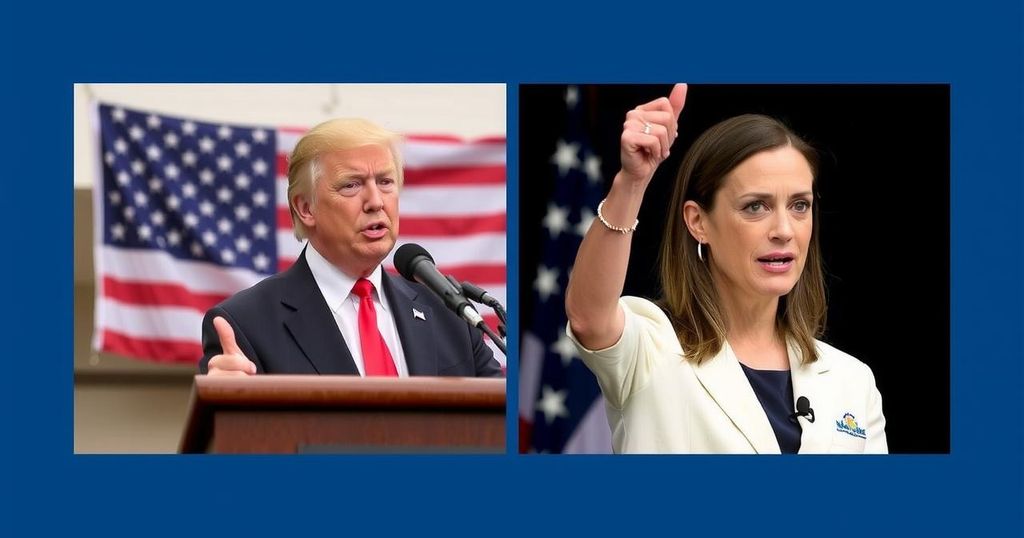Tuesday’s special elections in Virginia will be a significant indicator of political sentiment ahead of the 2025 gubernatorial race. Key races, including those for the General Assembly, could either consolidate Democratic control or reflect Republican gains. Major issues such as abortion rights, budget allocations, and education funding will heavily influence voters, and the outcomes may shape future legislative agendas.
The special elections scheduled for Tuesday in Virginia will serve as a critical preliminary evaluation of political sentiments preceding the 2025 gubernatorial race. With Republicans potentially on the verge of regaining control at both the congressional and presidential levels, the results could either consolidate the Democratic Party’s dominance within the Virginia General Assembly or indicate an emerging Republican trend.
In the 32nd Senate District, Democratic Delegate Kannan Srinivasan aims to retain his position against Republican Tumay Harding, who is contesting the seat following U.S. Rep.-elect Suhas Subramanyam’s transition to Congress. Additionally, in the 26th House District, Democrat J.J. Singh is competing against Republican Ram Venkatachalam for the seat left vacant by Srinivasan. Both races have garnered national attention, with the Democratic Legislative Campaign Committee investing heavily, underscoring their significance in the broader political landscape.
In the Republican-leaning 10th Senate District, Democrat Jack Trammell competes with GOP nominee Luther Cifers to succeed the former state senator, John McGuire, now a U.S. Congressman. With more than 60% of voters historically supporting former President Trump and around 70% backing Governor Glenn Youngkin, Cifers is considered to be the frontrunner in this district.
As lawmakers also deliberate on a $2 billion budget surplus, both parties are exploring ways to negotiate funding priorities. Democrats focus on increasing K-12 education funding, while there is mutual interest from both sides regarding tax relief for workers amid budget discussions.
Abortion rights are emerging as a pivotal issue in the special elections. Democratic candidates Srinivasan and Singh have committed to protecting access to abortion, while Venkatachalam has yet to clarify his stance. Harding noted that current regulations largely prohibit late-term abortions and supports policies aimed at minimizing the necessity for abortions, declaring life to commence at conception.
In the 10th District, Trammell advocates for a proposed constitutional amendment to safeguard abortion rights, contrasting with Cifers’s unwavering opposition to abortion without exceptions. Retaining Democratic control of Virginia’s legislature is deemed essential for progressing the amendment’s advancement, with majorities in both chambers enhancing their capacity to propound such measures.
Although abortion issues do not strictly align with party lines, the division among Virginia lawmakers reflects notable partisan tensions. In the 2023 elections, many Republican lawmakers endorsed Youngkin’s initiative to limit most abortions after 15 weeks, while Democrats championed preserving existing laws and enshrining abortion rights within the state constitution.
As Trump reenters the White House, states providing expansive abortion protections are enacting measures to further solidify these grounds in anticipation of potential federal rollbacks. Conversely, states with stringent restrictions are furthering fetal personhood bills and imposing limits on abortion medications. Since the Supreme Court’s decision to overturn federal protections in 2022, abortion remains a critical issue affecting both state and national political dialogues.
The upcoming special elections in Virginia represent a significant moment for both major political parties as they prepare for the 2025 gubernatorial race. With potential shifts in power dynamics on the horizon, the outcomes of these elections could provide insight into voter sentiment within the state. Key issues such as budget allocations, education funding, and abortion rights are at the forefront of these races, reflecting broader national trends and local priorities. As Virginia balances its political landscape, these elections may further influence the legislative direction ahead.
In conclusion, the special elections in Virginia are poised to have far-reaching implications for both the Democratic and Republican parties as they strategize for the 2025 gubernatorial race. With critical issues such as education funding and reproductive rights dominating the discourse, the elections will markedly test the political waters in the wake of recent national developments. The outcomes may serve as indicators of voter sentiment and party momentum as Virginia moves forward into a crucial electoral period.
Original Source: dailyprogress.com






